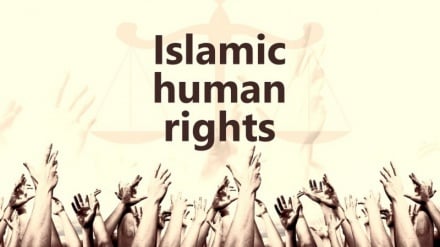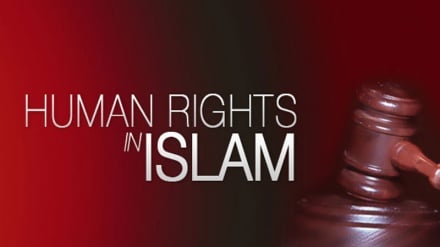Islamic Human Rights (15)
Welcome to the 15th weekly episode of the series Islamic Human Rights. In this episode we will study the different views of Western and Islamic human rights in regard to the right of existence.
In the last episode we stated the fundamental differences of Western and Islamic human rights. These major differences, which have formed and shaped Western ideology, have been taken into consideration in preparation of the Universal Declaration of Human Rights.
The foundations of Western ideology at times are starkly at odds with the culture and religious and philosophical beliefs of the people of other lands. Thus, many in the international community are against the globalization of human rights declarations and documents.
As you know, human communities maintain different ideologies, cultures, and environments, and are administered based on different rights, ethics, and religions. Hence, human rights and their contents should be defined in a manner that would be approved of by all communities and nations and/or at least would not lead to major contradictions in interpretation and definition of these rights.
Today, there is no global ruling system and the people of the world are not the nationals of a single ruling system. Hence, mankind’s full abidance by all human rights and rules and regulations seems rather impossible. Therefore, presentation of a number of interpretations from the contents of human rights declaration is natural.
When the members of a community comply with rules and regulations it is because they are certain the related lawmakers have been aware of people’s material and spiritual interests, and are honest and amicable toward the members of the community, and therefore these lawmakers always want the good of their people.
Moreover, the members of any community elect their representatives to set laws, while trusting their lawmakers. Additionally, the members of any given community maintain cultural and religious commonalties; and share their national interests.
Today, it cannot be claimed that all members of communities have accepted the competence of Western officials for setting laws and obligations. Moreover, the global nations have not been assured of the purity and amity of Western officials.
Meanwhile, in order to understand the different interpretations of contents of human rights, these rights will be studied further, and the Western and Islamic interpretations of human rights will be elaborated.
The right of existence is a divine blessing; the most important right of mankind; and his main asset. Any right which we would consider for mankind; and any perfection which mankind should achieve are tied to man’s existence. Any individual, who intends to elevate, should exist. Also, anyone who would want to benefit from divine blessings in the world should be alive.
There are two completely different interpretations of the right of existence. One is based on divine ideology, and the other is based on liberalism. These two interpretations have been reflected in the Universal Declaration of Human Rights and Islamic Declaration of Human Rights. The 3rd article of Universal Declaration of Human Rights notes, everyone maintains the right to existence, freedom, and personal security.
In the view of Western philosophers of human rights, mankind owns the right to existence, and no one has the right to restrict this right. Hence, the punishment of death by hanging is condemned and prohibited. Also, in the West’s outlook, given that existence is the innate right of mankind, anyone can let go of his right and attempt suicide.
However, in divine viewpoint, given that God is the one and only creator of the universe, no one has the right to kill others or to commit suicide. This is because in Islamic viewpoint, existence is a God-given right and a divine blessing, bestowed on mankind. Hence, if this right turns into a means for murder of others or corruption in the community, it will be denied in favor of others.
The first right which Holy Qur’an has taken into consideration for mankind is the right of existence. In Islamic standpoint, there are material and spiritual existence. No one has the right to deny others of their material or spiritual existence.
The denial of the right to material existence takes place with murder. In Qur’anic viewpoint, this is equivalent to destruction of the entire community, unless it takes place based on an appropriate and logical reason.
The 32nd ayah of Surat al-Maidah in Holy Qur’an notes: “…whoever kills a soul, without its being guilty of manslaughter and corruption on the earth, is as though he had killed all mankind…”
The denial of the right to spiritual existence takes place through misguidance. The one who misguides others wipes out their spiritual existence. Loss of spiritual existence is tantamount to loss of the path to prosperity and salvation. Otherwise, human spirit will never be eliminated. Hence, Holy Qur’an considers spiritual existence to be the opposite point to faithlessness.
The 70th ayah of Ya Sin Surah in Holy Qur’an notes: “… so that anyone who is alive may be warned, and the word may come due, against the faithless.”
In the Qur’anic viewpoint, the right of existence is only bestowed by God on mankind. Any infliction of material or spiritual harm, without God’s permission, is forbidden. In other words, existence is in fact the right and duty of mankind, both, in Islamic standpoint.
MR/SS


